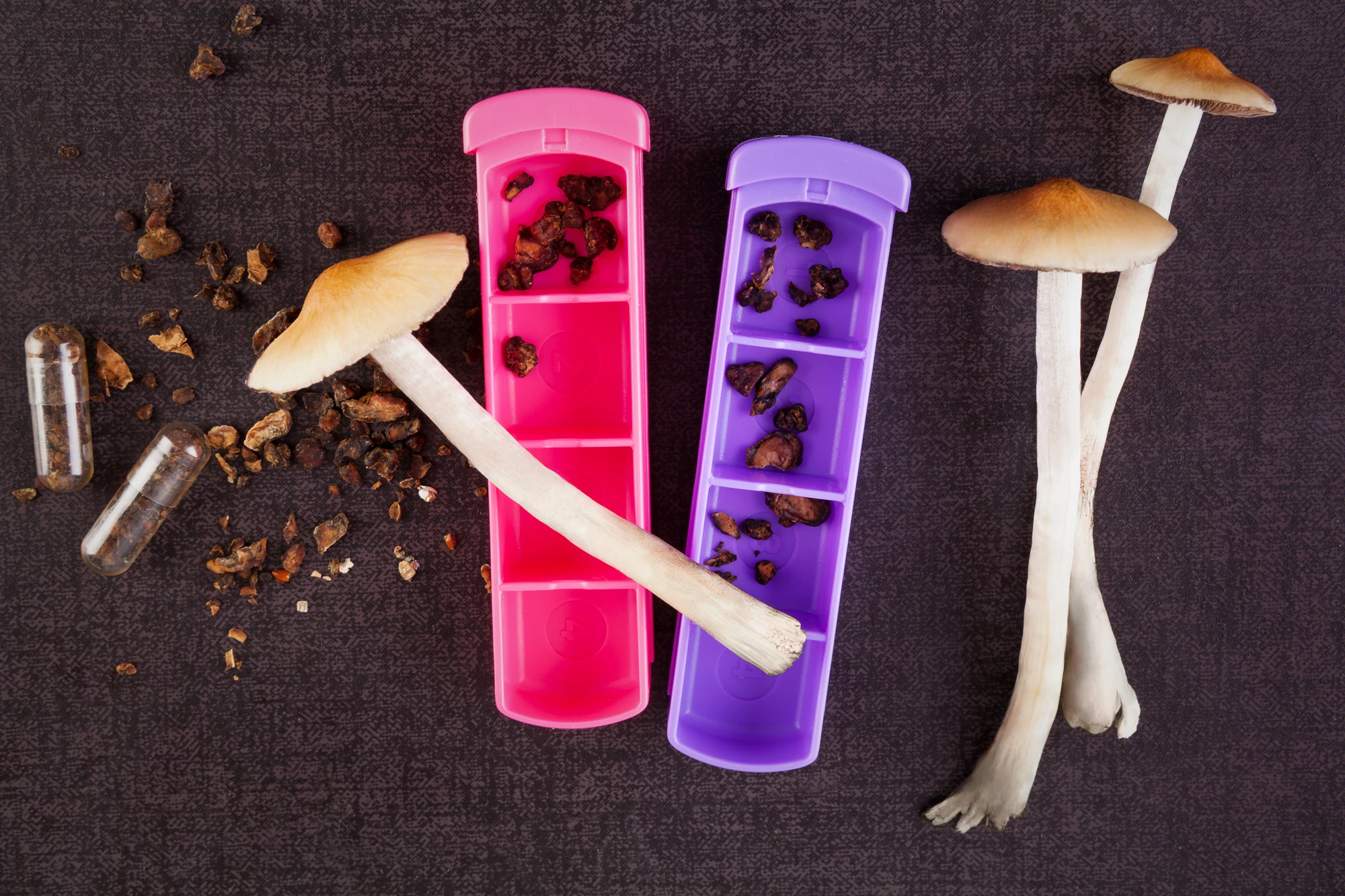A first-of-its-kind clinical trial has pitted a common antidepressant against psilocybin, the main psychedelic compound found in magic mushrooms. The results, recently published in the New England Journal of Medicine, are decidedly mixed with the primary depression measure revealing no significant difference between the two treatments, but a number of secondary measures notably favoring psilocybin.
As research into psychedelic psychotherapy accelerates around the world it seems as though we may be just a few years away from these paradigm-shifting treatments becoming clinically accessible. The US Food and Drug Administration (FDA) has even granted Breakthrough status to psilocybin therapy for both major depressive disorder and treatment-resistant depression, helping speed up ongoing Phase 2 trials.
Although early signs suggest psilocybin psychotherapy may be effective in treating depression, until now there has not been any robust research directly comparing this new treatment to common antidepressant treatments. To fill this gap in the science a team of researchers from Imperial College London’s Centre for Psychedelic Research conducted a phase 2, double-blind, randomized, controlled trial.
The trial recruited 59 adults with moderate to severe depression. Thirty subjects were assigned to the psilocybin arm receiving two active psychedelic therapy sessions three weeks apart. They also received daily placebo pills for the six-week duration of the trial. The antidepressant group received daily doses of escitalopram (commonly known as Lexapro) for six weeks, while also completing two "placebo" psychedelic therapy sessions with an inactive microdose of psilocybin.
The primary outcome measure in the trial was a change in baseline scores on a widely used scale for measuring depression called the Quick Inventory of Depressive Symptomatology–Self-Report (QIDS-SR). At the end of the six-week trial improvements were seen in both the psilocybin and escitalopram groups’ QIDS-SR scores, however, no statistically significant differences were found. Basically, according to the QIDS-SR scores, psilocybin therapy was virtually as effective as the common antidepressant after six weeks of treatment.
In and of itself this somewhat neutral finding has value. Escitalopram is a well studied antidepressant drug that has shown in prior clinical trials to be efficacious compared to a placebo in treating serious clinical depression. So demonstrating psilocybin therapy is as at least efficacious as escitalopram is promising despite potentially underwhelming more ardent psychedelic science advocates.
However, as with most things, the devil is in the detail. And Robin Carhart-Harris, lead researcher on the project, has suggested a number of secondary outcomes point to the psilocybin treatment demonstrating significantly greater efficacy than escitalopram. In fact, out of the 11 outcomes measured in the study, the QIDS-SR score showed the smallest difference between the two groups.
Carhart-Harris has expressed regret in locking the QIDS-SR measure as the trial’s primary outcome, and in an expansive Twitter thread he suggests the more “conservative” framing of the results in the published study were a result of the journal’s editing procedure.
“I strongly encourage readers to check out the supplementary appendix,” he notes. “This contains some figures and tables we would have preferred to have been made available to readers within the main paper but the journal moved them to the appendix. Some of the framing of the results are not our words but rather those of the paper's handling editor.”
https://t.co/d0BU8ZnxOe pic.twitter.com/PoJvsP6zfv
— Robin Carhart-Harris (@RCarhartHarris) April 14, 2021
Kevin McConway, an Emeritus Professor of Applied Statistics at the Open University, suggests what Carhart-Harris calls “conservative” are actually established scientific conventions that prevent research data from being skewed by scientists. McConway argues Carhart-Harris is being somewhat “misleading” by presenting values in an appendix and claiming those results are “free of any narrative.”
“The values are numbers that emerged from particular choices, made by him and the other researchers on this trial, on how to design and register a clinical trial, and on further choices about how to analyse the data,” says McConway, who did not work on this new research. “Looking at the numbers in isolation as if the numbers can stand for themselves is seriously misleading.”
The research team are very open and frank about the limitations of their trial. There was no placebo group serving as control, and it is virtually impossible to effectively blind a trial involving psychedelics. The six-week duration of the trial was also noted as potentially too short to best evaluate the efficacy of escitalopram, a drug with a known delayed therapeutic action.
Despite these mixed results and comprehensively self-reported caveats, some experts not affiliated with the trial see the findings as encouraging. Paul Keedwell, from Cardiff University, calls the secondary outcome results “tantalizing” and points out the new data will inform the design of future, larger trials.
“Bigger and longer studies are needed to test the potential of this exciting psychedelic, which is thought to produce 'emotional breakthroughs' in depression sufferers,” says Keedwell. “An 'active placebo' will be essential, because individuals know when they have been given the psychedelic.”
In general this novel study is a potent reminder of the work that still needs to be done before psilocybin psychotherapy for depression is broadly approved for clinical uses. Unlike MDMA for PTSD, a psychedelic medicine currently in late-stage Phase 3 trials and nearing market approval, psilocybin for depression is still only in Phase 2 testing.
This newly published research is a valuable building block for researchers moving forward, offering insights into Phase 3 trial design while delivering potent indications psilocybin may very well be a valuable therapeutic compound. So despite the inconclusive nature of the data presented, a finding that suggests psilocybin is at least as efficacious as a common antidepressant it still is of great value.
“One of the most important aspects of this work is that people can clearly see the promise of properly delivered psilocybin therapy by viewing it compared with a more familiar, established treatment in the same study," says Carhart-Harris. "Psilocybin performed very favorably in this head-to-head.”
The new study was published in the New England Journal of Medicine.
Source: Imperial College London




